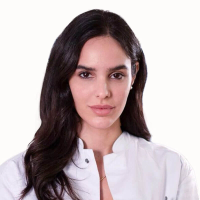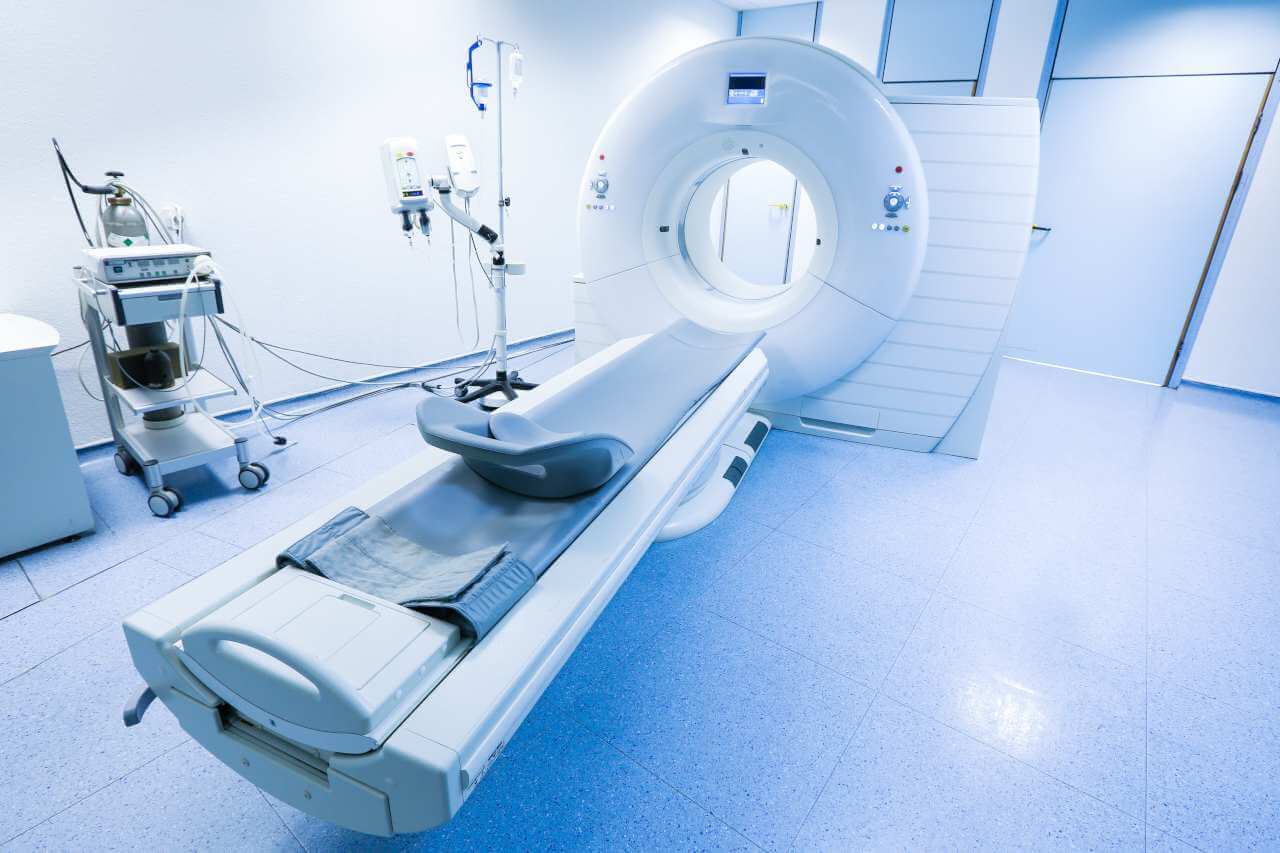
The program includes:
- Initial presentation in the clinic
- clinical history taking
- physical examination
- review of medical records
- laboratory tests:
- complete blood count
- biochemical analysis of blood
- indicators of inflammation (CRP, ESR)
- indicators blood coagulation
- otorhinolaryngological examination:
- rhinoscopy
- otoscopy
- pharyngoscopy
- laryngoscopy
- rhinomanometry
- preparation according to preoperative standard
- plastic septum repair to eliminate the problem
- symptomatic treatment
- control examinations
- the cost of essential medicines and materials
- nursing services
- full hospital accommodation
- explanation of future recommendations
- written statement
Required documents
- Medical records
Service
You may also book:
 BookingHealth Price from:
BookingHealth Price from:
About the department
The Department of Adult and Pediatric Otolaryngology at the Meoclinic Hospital Berlin offers the full range of services for the diagnostics and treatment of ENT diseases. The department's team of doctors pays due attention to the treatment of acute and inflammatory diseases of the nose and paranasal sinuses, pathologies of the ear, oral cavity, pharynx, salivary glands and larynx. The department provides medical care for both adults and children. The department has modern operating rooms, where surgeons perform surgical treatment of complex ENT conditions using endoscopic, microsurgical and open surgical techniques. The medical facility also offers advanced technologies for the examination of ENT organs, including equipment for rhinoscopy, otoscopy, X-ray scanning, ultrasound scanning, and magnetic resonance imaging. The department's specialists always strive to provide high-quality treatment and meet all the patient's needs. In addition, otolaryngologists guarantee an individual approach to each clinical case, which contributes to the achievement of the best therapeutic results. The department is headed by Dr. med. Dilan Arsoy.
The department's medical team often admits patients with ear pathologies and hearing loss. In addition, patients suffering from infectious diseases such as otitis media seek medical help in the department. These pathologies respond well to antibiotics. In addition, a common complaint in the department's clinical practice is hearing impairment or its complete loss. In this case, the doctors of the medical facility primarily focus on comprehensive diagnostics to detect the causes of hearing loss. Depending on the diagnostic data obtained, further therapeutic measures are determined to improve hearing and improve the patient's quality of life. In some cases, it is enough to select the optimal hearing aid, but often hearing improvement surgery is also required. The department's otolaryngologists specialize in type I, II and III tympanoplasty, stapedectomy and stapedoplasty. Such operations are performed in both adults and children. When performing interventions, the department's surgeons use microsurgical techniques, which can significantly reduce the period of hospitalization – in most cases it is only 3-5 days.
The treatment of pathologies of the nasal cavity and paranasal sinuses also occupies an important place in the department's clinical practice. The most common diagnoses in this field of otolaryngology include rhinitis, including allergic one, sinusitis, frontal sinusitis and nasal polyps. The doctors of the medical facility also specialize in the surgical repair of the deviated nasal septum (septoplasty, septorhinoplasty), surgery for nasal and paranasal polyp resection, operations for nasal concha reduction in case of hyperplasia. During the above mentioned operations, sparing microsurgical and endoscopic techniques are used. Prior to the intervention, the doctor tells the patient about the upcoming treatment, the stages of the operation and the expected results. After surgical treatment, the patient receives high quality care and the necessary recommendations.
The department's therapeutic offer is complemented by the treatment of pathologies of the oropharynx and throat: putrid throat, tonsillitis, swallowing disorders, mononucleosis, lateral and medial neck cysts and fistulas, as well as other diseases. Whenever possible, conservative therapy is preferred. If necessary, the department's specialists also perform surgical interventions. The department often performs surgery to remove nasopharyngeal tonsils in children (adenotomy). These operations are performed under general anesthesia. In most cases, there is no need for hospitalization, so the procedure is performed on an outpatient basis. The duration of the intervention is only 10-15 minutes. The department's surgeons also successfully perform operations to remove neck lymph nodes (for example, in case of cancer), operations on the vocal cords (for example, in case of vocal cord polyps, malignant neoplasms of the vocal cords, cysts and vocal cord swelling), operations to remove lateral and medial neck cysts and fistulas, operations to treat snoring (uvuloplasty).
The department's range of surgical services includes:
- Operations on the outer and inner ear
- Hearing improvement surgery
- Types I, II and III tympanoplasty
- Stapedectomy
- Stapedoplasty
- Ear reshaping (otoplasty)
- Mastoidectomy
- Parotidectomy (parotid salivary gland removal)
- Auditory meatus augmentation
- Surgical closure of chronic tympanic membrane perforation
- Sanitation for chronic rhinitis
- Hearing improvement surgery
- Operations on the nasal cavity and paranasal sinuses
- Septoplasty
- Septorhinoplasty
- Operations for nasal cavity and paranasal sinus polyp resection
- Operations for nasal concha reduction in case of hyperplasia
- Oropharyngeal surgery
- Adenoidectomy in adults and children
- Operations for neck lymph node removal
- Operations on the vocal cords
- Uvuloplasty
- Surgical removal of lateral and medial neck cysts and fistulas
- Laryngeal surgery
- Microlaryngoscopy
- Laryngectomy (partial and total)
- Facial surgery
- Blepharoplasty
- Removal of basaliomas in the head and neck
- Surgical treatment of chronic facial paralysis
- Surgical resection of benign and malignant head and neck tumors
- Other types of surgical interventions
Curriculum vitae
Dr. med. Dilan Arsoy is a board certified otolaryngologist and an expert in facial plastic and aesthetic surgery. Rhinoplasty is of particular clinical interest to the doctor.
Dr. Dilan Arsoy graduated from the Humboldt University of Berlin and the Free University of Berlin. In 2011, she defended her thesis on tinnitus.
In 2009 and 2010, the specialist underwent clinical training in the Department of Ophthalmology and the Department of Otolaryngology of the New York University Medical Center, USA. This was followed by the position of Assistant Physician in the Department of Otolaryngology, Head and Neck Surgery at the Ernst von Bergmann Hospital. In 2013, she worked as a Visiting Physician at the world-famous Mayo Clinic in Rochester, USA. The main focus of the specialist's clinical activity at that time was facial plastic surgery. In 2018, Dr. Dilan Arsoy underwent specialized training in facial plastic surgery at hospitals in Connecticut and New York, USA, where she continued to improve her qualifications in rhinoplasty and aesthetic facial plastic surgery. In 2016, Dr. Arsoy had her professional certification in Facial Plastic Surgery. The specialist regularly participates in prestigious national and international congresses dedicated to rhinoplasty and aesthetic facial surgery.
Photo of the doctor: (c) Meoclinic
About hospital
The Meoclinic Hospital Berlin is one of Germany's most renowned multidisciplinary private hospitals offering top-class and patient-centered medical care. The hospital opened its doors to patients back in 2000 and today is deservedly proud of its vast experience. It has 28 specialized departments, each of which is responsible for the treatment of a particular group of diseases. A highly professional medical team consisting of 67 doctors takes care of the health of patients. The basis of the work of the doctors of the hospital is the use of the most advanced and, if possible, sparing treatment methods. The hospital is certified according to ISO 9001:2015 standards, so patients benefit from the highest level of the quality of service, adherence to hygiene and safety standards.
The hospital includes almost all fields of modern medicine: internal medicine, general and abdominal surgery, endocrine surgery, vascular surgery, hernia repair surgery, hand surgery, plastic surgery, pediatric surgery, cardiology, pulmonology, gastroenterology, rheumatology, proctology, gynecology, urology, ophthalmology, orthopedics, neurology, neurosurgery. To provide surgical treatment, the hospital has three high-tech surgical suites, which perform both minimally invasive interventions and DaVinci robot-assisted interventions, as well as the most complex operations lasting several hours. In addition, the hospital has an advanced Radiology Center with innovative devices for computed tomography, magnetic resonance imaging, ultrasound diagnostics and X-ray scanning. These resources allow providing accurate diagnostics and effective treatment of the highest European level.
Despite the fact that the hospital has advanced technologies and modern infrastructure, the focus of the medical staff is on the patient – his needs, wishes and well-being. During the treatment in this medical center, patients are surrounded by care, comfort, and they are treated with maximum respect and understanding. The doctors of the hospital use all their professionalism and medical knowledge for the benefit of patients, saving lives even in particularly complex cases.
Photo: (с) depositphotos
Accommodation in hospital
Patients rooms
The patients of the Meoclinic Hospital Berlin live in well furnished rooms, corresponding to the level of luxury five-star hotels. There is a fantastic view from the windows of the patient rooms on the Gendarmenmarkt, the Reichstag, the Friedrichstrasse or the courtyard of the hospital. The hospital has a pleasant atmosphere, which is also facilitated by soothing colors. The standard patient rooms include a comfortable bed, a bedside table, a desk and chairs, a wardrobe with a built-in safe for storing valuables, air conditioning, a minibar, a TV and a telephone. Free Wi-Fi is available in the patient rooms. Each patient room has an ensuite bathroom with shower and toilet, heated floor. There are bath slippers, towels and toiletries in the bathroom. A bathrobe, shower caps, shaving kit and hairdryer are available upon request.
Meals and Menus
The patients of the hospital are offered tasty and healthy three meals a day: breakfast, lunch and dinner. The menu mainly includes vegetable, fruit, poultry and fish dishes. Each patient has a choice of several menus, including traditional Russian and Arabic cuisine, as well as kosher and vegetarian meals.
If for some reason you do not eat all foods, you will be offered an individual menu. Please inform the medical staff about your dietary preferences prior to treatment.
Further details
Standard rooms include:
Accompanying person
Your accompanying person may stay with you in your patient room or at the hotel of your choice during the inpatient program.
Hotel
You may stay at the hotel of your choice during the outpatient program. Our managers will support you for selecting the best option.




